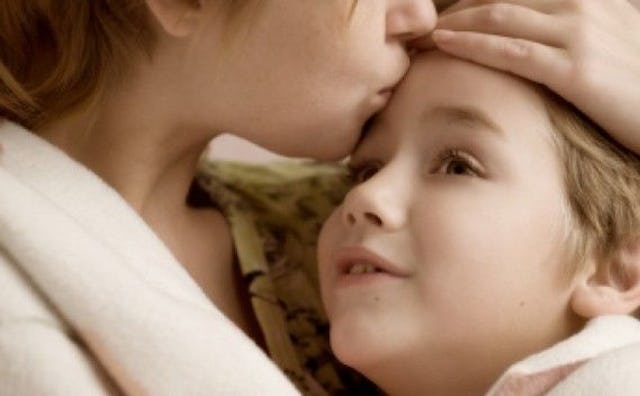The Myth Of Protection

It is a pivotal and excruciating parenting moment when we realize that we cannot protect our children from the world’s evils. For those of us who parented through the ’90s and ’00s, it feels sometimes like we have been bombarded with events that reminded us of this heart-clenching fact. Although one of the hardest things in parenting was letting go of the myth that I could protect my children, there was something even harder yet to come.
For my family the dissolution of this myth began on March 13, 1996. I had two children in nursery school and another closing in on his due date. The kindergarten classroom massacre that morning in Dunblane, a small Scottish town, sent me reeling as I could not find a single excuse why my sons, being educated in a small English town, could not have been in harm’s way. Parents were frightened, a nation grieved and the only hope we could hold onto was that such acts of unspeakable evil would rarely, if ever, happen again.
Like every parent, for weeks I was haunted and felt raw. I think that feeling of exposure came from letting go of the illusion that, even though my children were tiny, even though as millennials they were encased in a world designed to ensure their safety, such safety could never be assured. Knowing something and experiencing the realization, for me, were two different things.
For many years I knew this truth and my children didn’t. They learned of Columbine and still either believed that such horrific events would not come into our lives or, that if they did, that I as their parent could offer them protection.
Then came 9/11. With our home and the children’s school 40 miles north of the World Trade Center, we rushed them home from school and did nothing to shield them from the truth. As scared as they were I found that they were still young and believing that they lived in their parent’s protection.
But on the day of the Marathon bombings, when my college son called from Boston to say that he was fine and nowhere near the explosions, he did not sound scared or even panicked. He knew I would worry about his whereabouts and just wanted to offer reassurance. He and his friends often travel the streets on which the Marathon was run and so it felt very close to him.
But then I heard it. In between phrases we have all said to each other, “I can’t believe this. It is just so horrible,” was the painful recognition that he might have been there.
On another day, a different week, he had walked along those streets where the bombs were left. He may have wanted me to tell him that it was okay, that he would be safe in the city he has grown to love. But he and I and the world around us are beyond that. And while in a very rational place in our children’s minds they know they are not in our protection, it is an event such as this that makes them experience it on a visceral level.
So here it was, the moment where he and I acknowledged that I had never really been able to protect him, that we had both been vulnerable and that only I had known it. The hardest day was not when I realized that I could not protect my son, it was when he did.
This article was originally published on